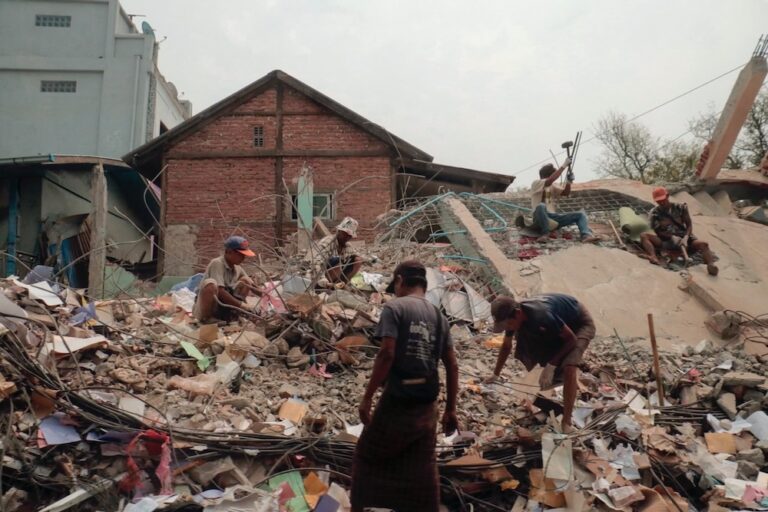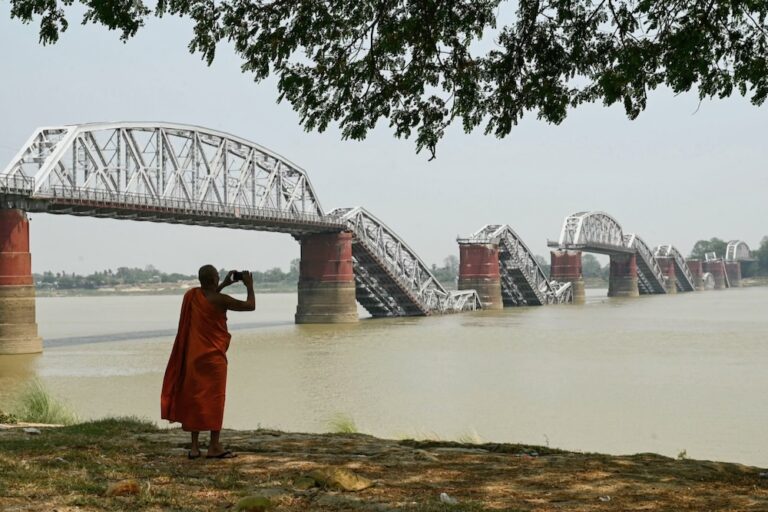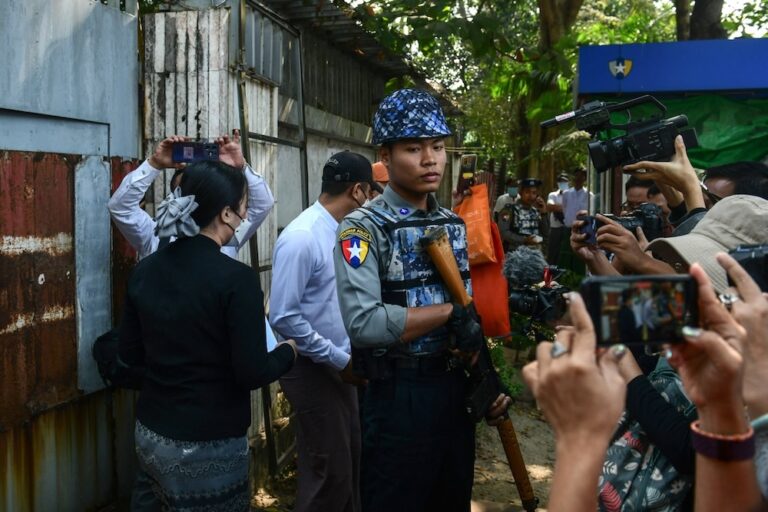(RSF/IFEX) – A month-old news blackout on the Burmese banking crisis, imposed by the military junta, is a flagrant violation of the Burmese people’s right to be freely informed, RSF and the Burma Media Association (BMA) said on 17 March 2003. Newspaper editors have been threatened with reprisals should they violate the ban. “The Burmese […]
(RSF/IFEX) – A month-old news blackout on the Burmese banking crisis, imposed by the military junta, is a flagrant violation of the Burmese people’s right to be freely informed, RSF and the Burma Media Association (BMA) said on 17 March 2003. Newspaper editors have been threatened with reprisals should they violate the ban.
“The Burmese government, one of the few in the world to impose prior censorship on privately-owned publications, has yet again demonstrated its inability to accept the free flow of economic news,” the two organisations said, reiterating their call for an immediate end to news censorship.
The Literary Works Scrutinising Committee (LWSC), an Interior Ministry offshoot responsible for censorship, summoned the editors of Burma’s main privately-owned newspapers to a meeting on 19 February. The editors were threatened with reprisals if they published any reports on the banking crisis. Officials explained that the news blackout is intended both to prevent the situation from deteriorating further and to put a stop to rumours.
Rangoon-based journalists have told RSF and the BMA in recent days that it remains impossible for them to report on the banking crisis. “I wrote three stories on the subject and they were all rejected. It is very frustrating,” one journalist said. No reports on the crisis have appeared in any newspapers, including the privately-owned English-language weekly “Myanmar Times”.
The banking crisis was set off by the government’s decision to close about a dozen savings and loan institutions that were offering better interest rates than banks. On 20 February, the Central Bank limited transfers and cash withdrawals to the country’s 20 banks. Hundreds of Burmese citizens have been lining up outside the banks every day in an attempt to make cash withdrawals on their savings.
A serious financial crisis in 1988 set off demonstrations that led to the emergence of the pro-democracy movement led by Aung San Suu Kyi.
Meanwhile, Burmese-language foreign radio stations have reported that the authorities banned the publication of reports on the accidental death of 14 students in a bus crash on the road from Syriam to Rangoon on 17 February.


